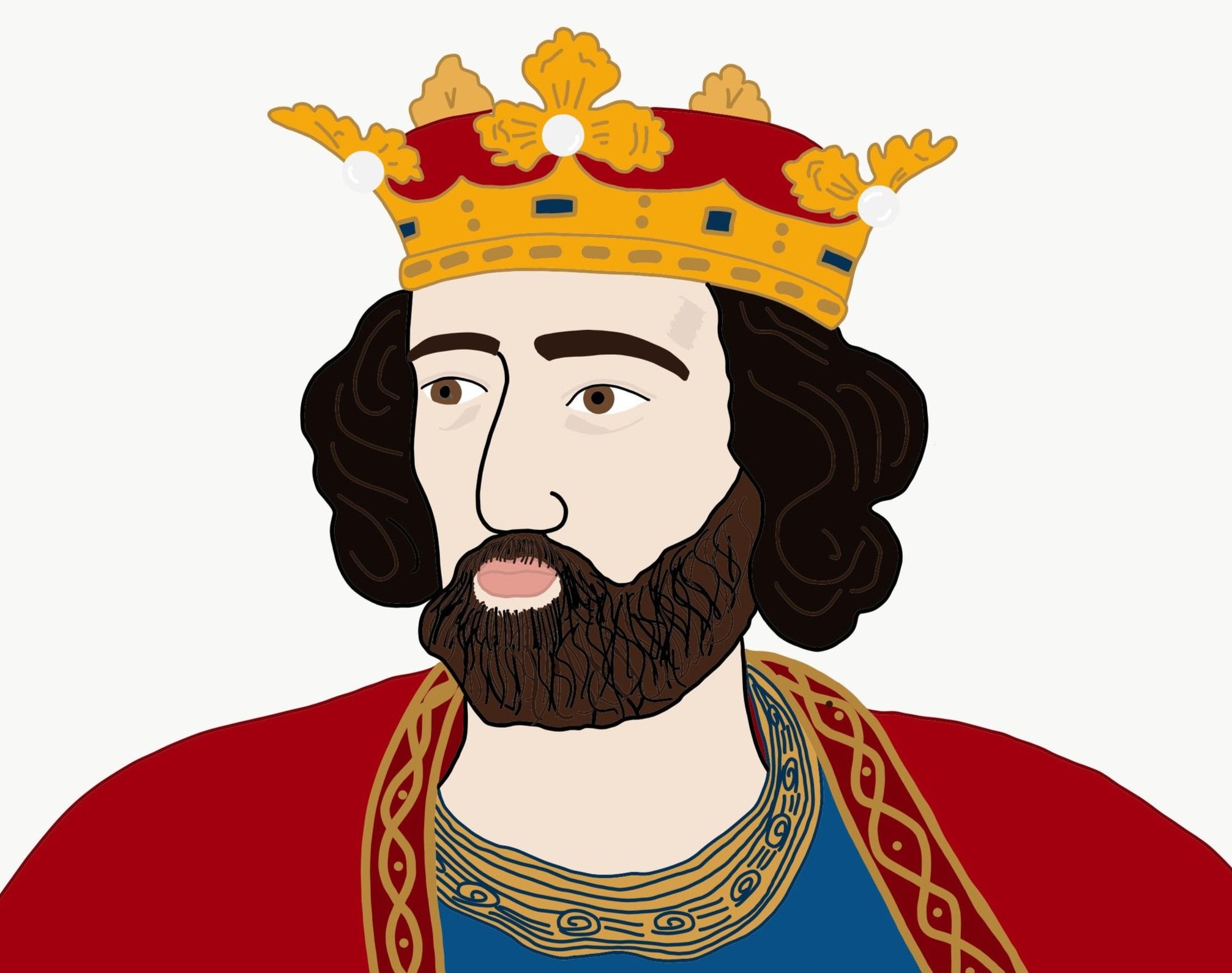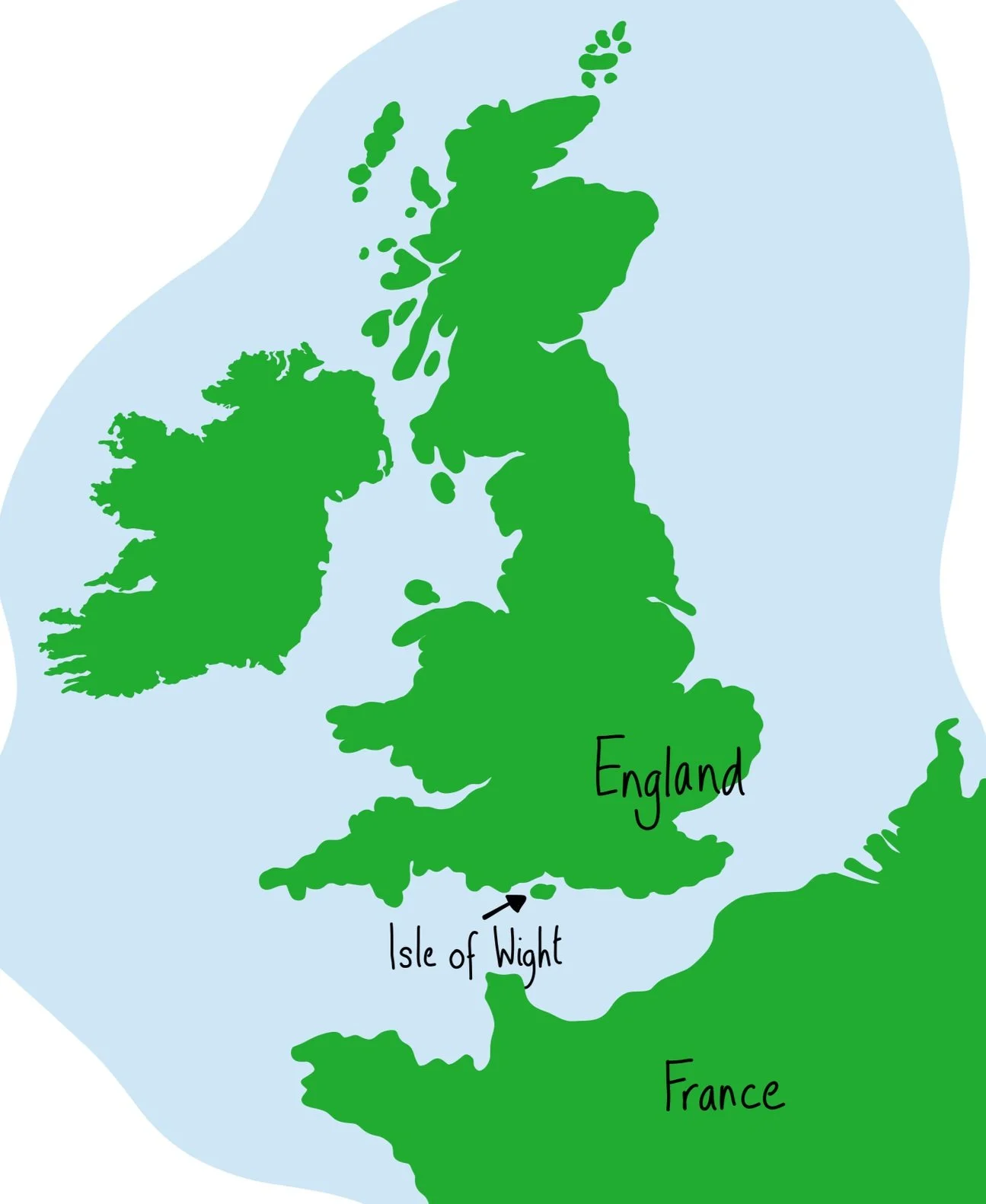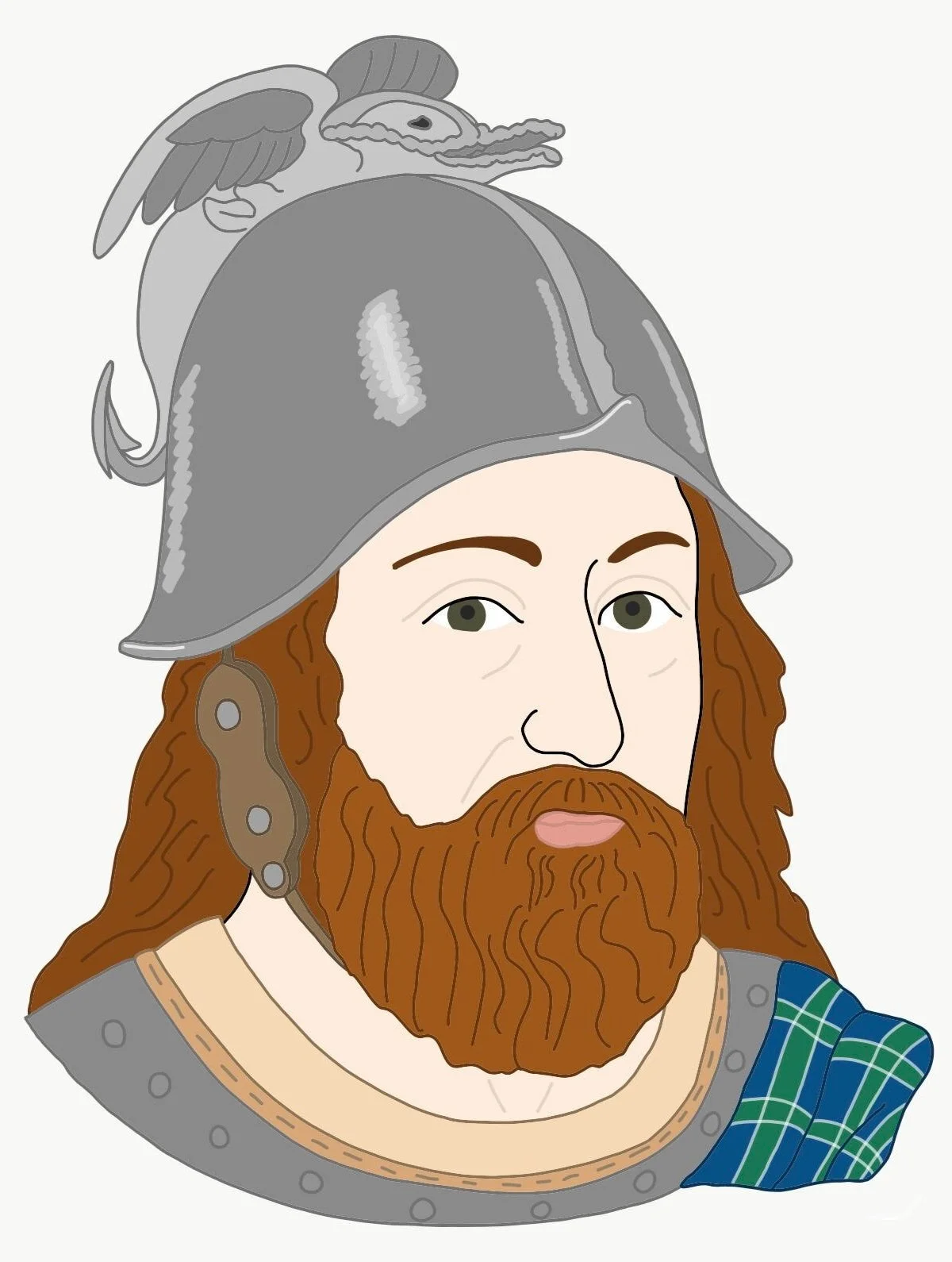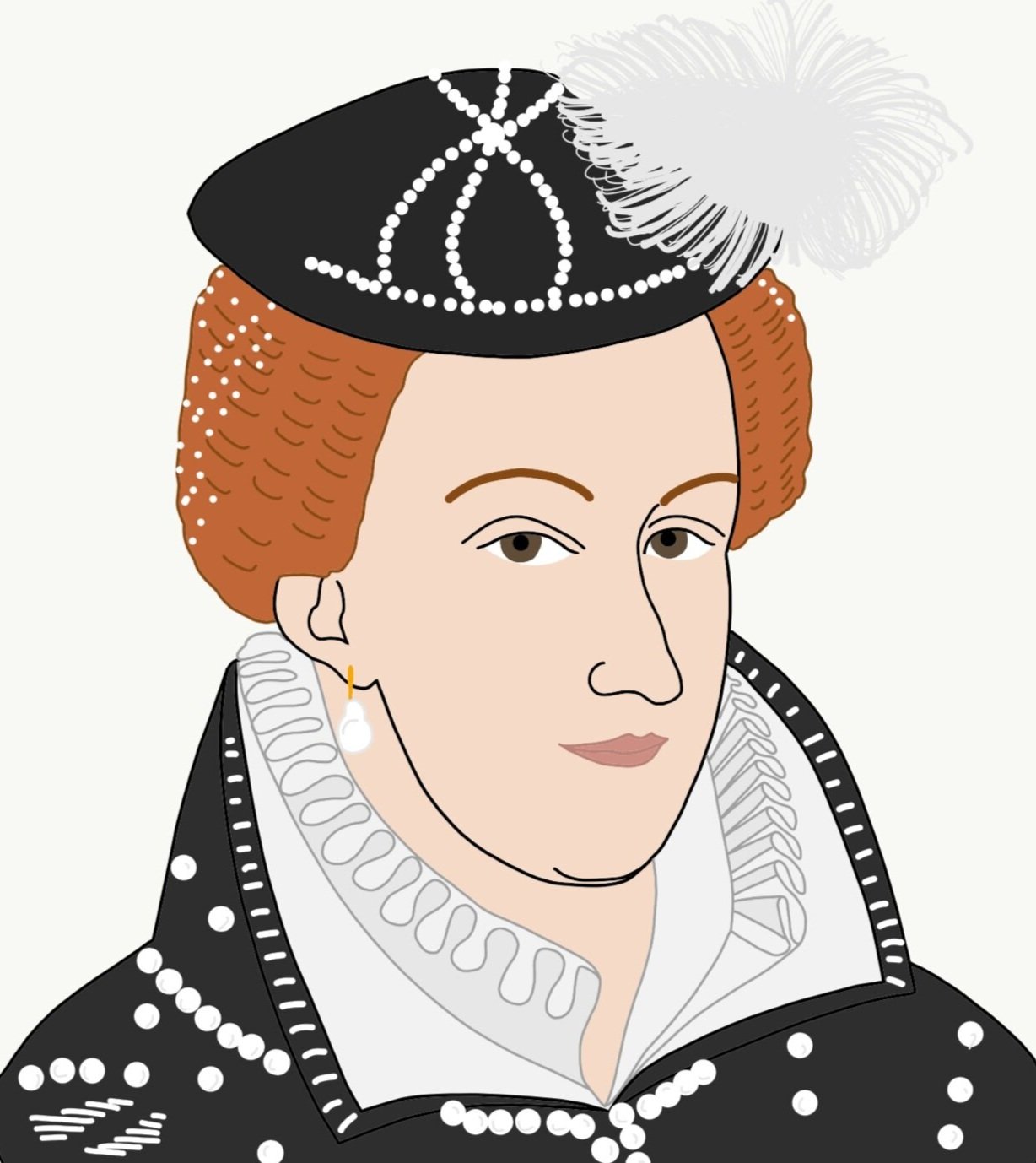July 18th - 24th
“Jews forced to leave England; the French invade England; England take Stirling Castle; England gives back Independence to India; Queen is forced to abdicate; the Pope’s power is revoked; a King loses his ship; and man walks on the moon...What a busy week in history!”
On 18th July…
64CE - The Great Fire of Rome began. The fire raged for a week and completely destroyed three of the fourteen districts that made up the city. Only four of the districts were untouched. Emperor Nero set about designing and constructing a new Rome the following month.
Jews are forced to leave England
1290 - King Edward I ordered the expulsion of Jews from England. This order took effect in November when the Jews living in England had to choose either to convert to Christianity or leave England altogether. This law remained in place for over 350 years; it wasn’t until 1656 that Oliver Cromwell officially allowed their return. Before their expulsion, the Jews had had the protection of the monarchy; being ‘servants’ of the king gave them a special relationship with the law, they were administered by a special court and had some privileges.
The Pope’s power in England is revoked
1536 - The Pope’s authority was declared void in England by Parliament. Henry VIII was Supreme Head of the Church of England and the Act Extinguishing the Authority of the Bishop of Rome was written to include the power to punish anybody who defended the Pope in Britain. Priests and other church officers were obliged to take an oath renouncing the pope’s authority or risk execution on grounds of treason.
1817 - Jane Austen the famous English novelist died. Some of her famous include Pride and Prejudice, Sense and Sensibility, and Emma. Her stories depict life in middle-class England during the 18th and early 19th centuries.
1918 - Nelson Mandela, former president of South Africa was born.
India’s Independence is returned
1947 - King George VI signed the Indian Independence Act. This gave independence to India and created two new dominions: India and Pakistan. Pakistan was also split into two creating Pakistan and East Pakistan (now called Bangladesh). These areas separated the Muslim, Hindu and Sikh populations and caused the biggest migration that ever happened that was not the result of war or famine. The new countries came into being a month later, on 15th August
On 19th July…
Henry VIII’s flagship sinks in the Channel
1545 - King Henry VIII’s flagship the Mary Rose sank in the English Channel at Portsmouth. The ship was built in 1510 and finally set sail in 1511. Having already fought in two wars against France and Scotland, the ship was part of a defensive fleet when a French armada attacked the Isle of Wight. Unfortunately, and for reasons unknown it began to capsize and sink to the bottom of the sea just outside Portsmouth taking her crew of about 500 men with her. It is famous for the salvage operation which brought her to the surface on live television. She is now in a museum in Portsmouth.
On 20th July…
356BCe - Alexander the Great was born in Macedonia (modern day Greece). Alexander grew up to become the greatest King of ancient Greece and ruled an empire that stretched from Greece to India and Egypt. Did you know that one of his early teachers was the Greek philosopher, Aristotle? He also had over 70 cities named after him.
1837 - Euston Station, London’s first railway station opened. In the beginning there were only two platforms and trains carried passengers and cargo from London to Birmingham.
Man walks on the moon
1969 - Neil Armstrong became the first man to walk on the moon followed by Buzz Aldrin after their spacecraft Apollo 11 landed. Their colleague Michael Collins remained inside the spacecraft. As he set foot on the moon Neil Armstrong said these famous words, “That’s one small step for a man, one giant leap for mankind.”
On 21st July…
French troops invade England
1545 - Whilst attempting to invade England, French troops landed at different parts of the Isle of Wight. Attempting to catch the islanders by surprise they were themselves surprised to find that the English had spotted their arrival and had already taken to high ground in order to repel any attack. All of the citizens of the Isle of Wight were required to have military training to defend their homes and soon had the French fleeing back to their ships unable to break through their defences.
Robert Burns dies
1796 - Robert Burns the famous Scottish poet who wrote numerous poems and songs including ‘Auld Lang Syne’ died.
On 22nd July…
William Wallace defeated at Falkirk
1298 - The Battle of Falkirk took place between the armies of King Edward I of England, and Scottish forces led by William Wallace. Using long bows that were nearly two metres long and that could shoot armour piercing arrows at a distance nearly twice the length of a football pitch, the English could attack the Scots from far away. This gave the English army a much better advantage, and with their greater numbers they easily overpowered and defeated the Scots.
2013 - Prince George, son of Prince William was born in London. Prince George is third in line to the English throne.
On 23rd July…
1914 - Austria-Hungary issued an ultimatum to Serbia following the assassination of Archduke Franz Ferdinand by a Serbian nationalist. The ultimatum had a 48 hour reply deadline and was written in such a way that it was practically impossible to accept the terms, or that Austria-Hungary would be willing to accept any amendments of the ultimatum by Serbia in an attempt to try and reach an agreement. Germany, an ally of Austria-Hungary, tried to diplomatically ease the situation but the other Great Powers (Britain, Russia, France) were not inclined to see Austria-Hungary as acting alone because of its relatively weak military. It appeared most likely that Germany would have to stand by its allegiance with Austria-Hungary and side against Serbia. Serbia appealed to its ally, Russia for advice. If Russia was drawn into the fray, then both Britain and France by extension of their allegiance with Russia would also be brought into the conflict. Serbia agreed to all of the terms of the ultimatum with one exception. This was not acceptable to Austria-Hungary who declared war, so beginning World War I.
On 24th July…
Stirling Castle falls to King Edward I
1304 - King Edward I of England took Stirling Castle, the last rebel stronghold of the war between England and Scotland. He had lain siege to the castle and its Scottish defendants led by Sir William Oliphant for three months before there was any sign of surrender. A note of surrender was sent to Edward I on 20th July but was rejected by the king. The rejection was possibly so that Edward could show-off one of his weapons that had been under construction during the siege. The ‘war wolf’ was a type of giant catapult that could hurl projectiles up to 140kg in weight at the castle. Stirling Castle was then reclaimed by the Scots ten years later at the Battle of Bannockburn.
Queen of Scotland forced to abdicate
1567 - Mary Queen of Scots who was imprisoned in Lochleven Castle was forced to abdicate in favour of her 11-month-old son James who then became King James VI of Scotland.
1851 - Window tax was abolished in Britain after pressure from doctors and others who argued that lack of light was a source of ill health. The tax was introduced by King William III of England in 1696 and was a banded tax according to the number of windows in a house. Some properties such as cottages were exempt from the tax but the more windows you had, the more tax you had to pay to the government. People needed windows to let in as much light as possible because the only source of light other than daylight was the candle or oil lamp. To avoid paying the tax people began to brick up their windows, you can still see some properties in the UK with bricked up windows where glass windows were.
1969 - Apollo 11 returned to Earth after its successful mission to the moon.








